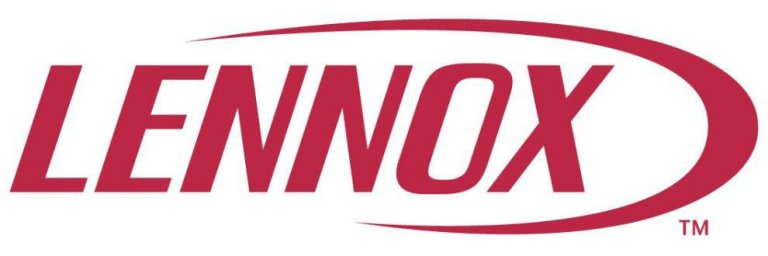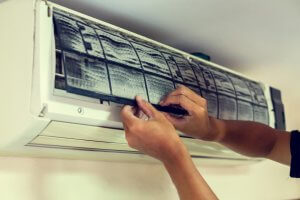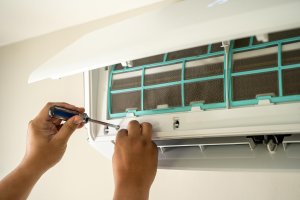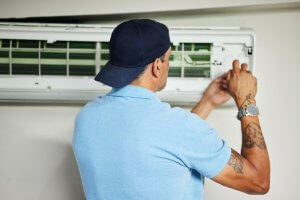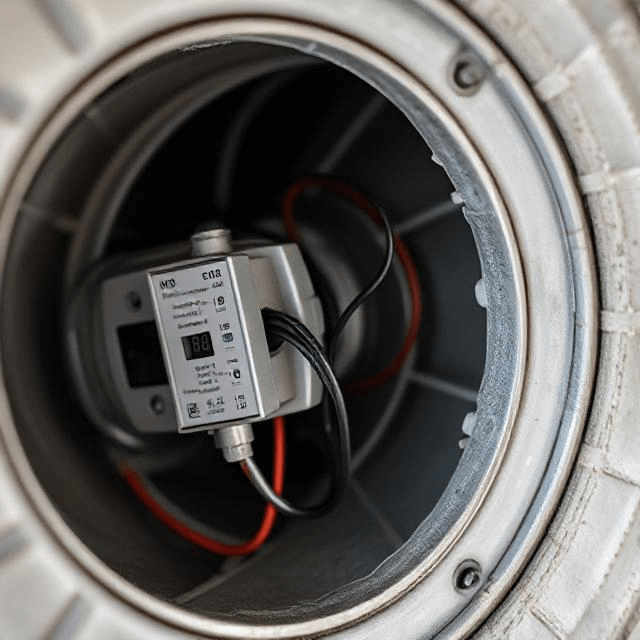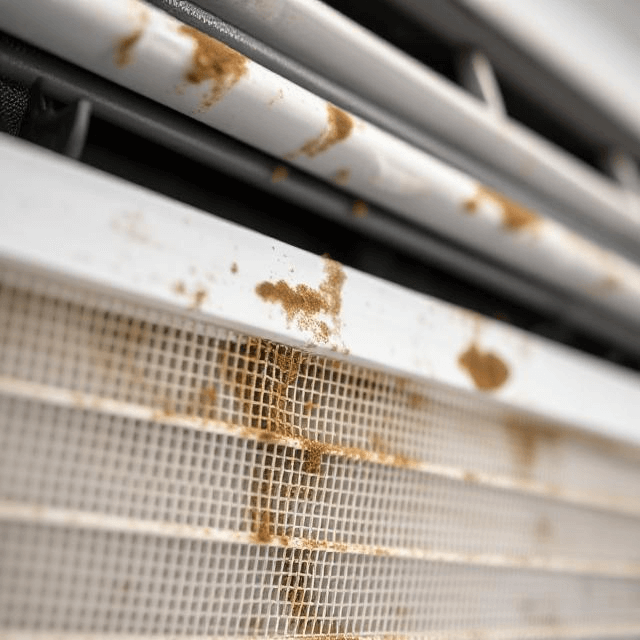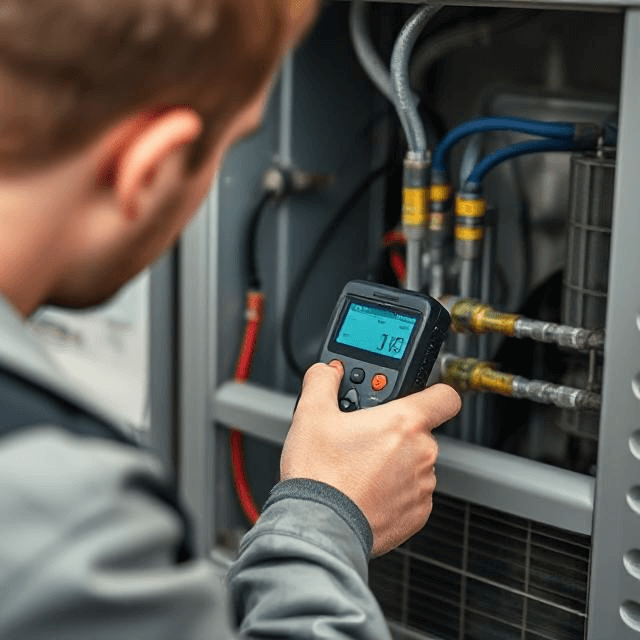An HVAC audit is a critical first step in enhancing your home’s energy efficiency. It pinpoints where your heating, ventilation, and air conditioning (HVAC) system might be losing energy. It also identifies ways to reduce your utility bills and improve indoor comfort.
This guide by Season Control HVAC dives into the process of an HVAC audit, highlighting its benefits and how you can prepare for one. By understanding an audit, you can make informed decisions that boost your home’s efficiency and comfort.
What is an HVAC Audit?
An HVAC audit, or an energy audit, is an assessment to identify areas where your HVAC system may be inefficiently using energy.
This process includes a detailed examination of all components of your system, including ductwork and insulation.
By identifying the problematic areas, an HVAC professional can recommend specific replacements or repairs to improve its overall performance.
Benefits of an HVAC Audit
- Reduced Energy Bills: Pinpointing energy waste helps create strategies to make the HVAC system more efficient. These improvements lead to savings on energy bills.
- Enhanced Comfort: The audit can uncover reasons for uneven heating or cooling and drafts. Addressing these issues helps maintain a consistent, comfortable temperature.
- Improved Air Quality: An audit can identify issues affecting indoor air quality, such as poor ventilation. Solving these problems ensures cleaner, healthier indoor air.
- Extended Equipment Life: Ensuring efficient operation of your HVAC system prevents overworking your equipment. This can extend its lifespan and reduce costly repairs or replacements.
- Environmental Impact: Using less energy at home means less pollution, helping our planet stay green.
- Eligibility for Rebates and Incentives: Utility companies and governments often offer rebates, incentives, or tax credits for energy-efficient upgrades.
- Identifies Safety Issues: The audit can reveal hazards like gas leaks or electrical issues. Promptly addressing these problems ensures the safety of your household.
- Customized Home Improvements: You receive a tailored report detailing specific improvements for your home. This allows you to prioritize changes that will have the most significant impact.
- Peace of Mind: Knowing your HVAC system runs efficiently and that you’re contributing to environmental health brings satisfaction and security.
Preparing for an HVAC Audit
- Clear Access: Ensure the auditor can access your HVAC system, including indoor and outdoor units. Move any furniture or clutter that might be in the way.
- Utility Bills: Gather recent utility bills. These help the auditor understand your home’s energy usage patterns.
- List of Problems: List any issues you’ve noticed, such as uneven heating or cooling, drafts, or unusual noises from the HVAC system.
- Previous Repairs: Have information on hand about any repairs or maintenance the system has undergone in the past.
The HVAC Audit Process
The auditor will thoroughly inspect the HVAC’s indoor and outdoor units for signs of wear or damage.
As part of their services, they will also check:
- Ductwork for leaks or insulation issues
- The thermostat to check the settings and control
- Ventilation for proper airflow
How to Understand Your HVAC Audit Results?
After completing your HVAC audit, the auditor will provide a detailed report outlining the findings. Here are some factors to consider when reviewing your audit results:
- Summary of Findings: The summary will highlight the major HVAC issues and an overview of the system’s performance.
- Energy Efficiency Ratings: The energy efficiency ratings or scores indicate the HVAC’s performance. If the ratings are high, your system is doing great. A low rating means there’s room to improve the HVAC’s functionality.
- Problematic Areas Identified: The report will detail specific issues with the HVAC found during the audit. Alongside the problem, you will also find recommendations for repairs or upgrades.
- Potential Savings: The audit report often estimates the potential savings you could achieve by making the recommended improvements.
- Safety Concerns: Any safety issues discovered during the audit, like gas leaks or electrical hazards, will be highlighted. Address these concerns immediately to ensure your safety.
After reviewing the report, contact professional HVAC maintenance services to fix the identified issues. They will also advise on preventing future problems and improving system performance.
Maintaining Your HVAC System Post-Audit
After completing your HVAC audit and making the necessary improvements, keep your system in top shape with these steps:
- Regular Filter Changes: Change your HVAC filters every few months. Clean filters mean better airflow and quality, as your system won’t have to work as hard.
- Seasonal Check-ups: Book a professional check-up for your system twice a year, ideally before summer and winter. This prepares it for the seasons when you need it most.
- Keep Vents Clear: Ensure furniture or curtains aren’t blocking your vents for improved airflow.
- Smart Thermostat Use: If you haven’t already, consider installing a smart thermostat. It learns your schedule and adjusts the temperature accordingly to save energy and money.
- Seal and Insulate: Check that your ductwork remains sealed and insulated, especially after any repairs or upgrades. This prevents energy leaks and keeps your home comfortable.
- Listen for Odd Noises: If your system starts making strange sounds, don’t ignore it. These could be early signs of issues that are cheaper to fix sooner rather than later.
- Educate Everyone at Home: Make sure everyone in your household knows the basics of operating the HVAC system.
How Often Should You Have an HVAC Audit?
Schedule an HVAC audit every two to three years for optimal performance efficiency. This helps keep your system running smoothly and catches minor problems before they become major issues. Plus, it will keep your energy bills low.
Keep Your Home Energy Efficient with Regular HVAC Audit
An HVAC audit helps you understand and improve your home’s energy efficiency. By identifying problematic areas, you can make changes that save money, enhance comfort, and even protect the environment.
Call Season Control at (818) 514-4914 for HVAC installation, repairs, and maintenance. Our team of experts is ready to help you optimize the system for peak performance.
